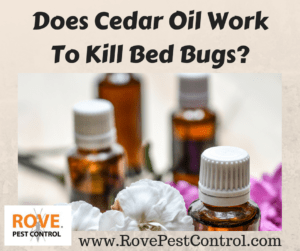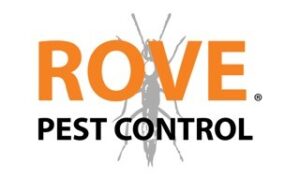There are a lot of home remedies that people have tried to use to get rid of pests and to kill bed bugs, but does cedar oil work to kill bed bugs? In this post, we answer that question and talk about some of the downfalls and benefits of natural pest control.

The FTC steps in on natural pest control product claims
Recently, there have been a few companies that have been under scrutiny for making untrue claims about their natural pest control products. These claims include getting rid of bed bugs, and killing head lice. The biggest issue with this is that people are being lead to believe that these pests can be kept out of their home by simply spreading some oils around their house.
It would be great if this was the case, however many of these home remedies and natural pest control products have not had any scientific backing behind them. This is especially true with claims of cedar oil killing bed bugs or warding off bed bugs from your home.
Bed bugs are extremely hardy and throughout history have been developing more and more resistance to pest control. Even with proper pest control treatments some companies struggle to get rid of these pests for good.
Here at Rove Pest Control, we use a state of the art heat treatment system that prevents bed bugs’ escape. We use a technology to raise the temperature in the room and infested area that is hot enough to kill off bed bugs for good.
A bed bug can only take so much heat, and once they reach that temperature, they die, plain and simple. With options like this, you don’t need to worry if a natural pest control product like cedar oils will work or not, because the treatments we use are backed up with results.
Was it the cedar oils that killed the pests or something else?
Another thing to consider with a lot of natural pest control remedies is that it might not actually be the remedies killing the pests but something else entirely. For example, a lot of these companies that were getting in trouble from the FTC was that they were making claims that their products killed and prevented head lice.
A common natural remedy for head lice is using mayonnaise and completely covering your head in it and then covering that with a shower cap. Now this natural pest control remedy can work, but what is really going on?
Does the mayonnaise have magic pest killing power? Well one thing that is for sure going on in this case is that the head lice are suffocating. With the mayonnaise covering the lice and them being trapped under the shower cap, they eventually run out of oxygen and die assuming complete coverage is achieved.
So this sort of method could actually end up working with a variety of products or natural remedies, but the real thing going on is the lice are just suffocating. This is a common occurrence with many natural pest control remedies.
They may work in some cases, or with direct contact with a pest, while others just happen to be coincidence and then companies decide to market a product claiming it’s amazing pest killing powers. In other situations, the product may work, but only at certain dosages and those dosages may be unachievable in normal settings or not specified how much or how to achieve it on the directions. Unfortunately, this is when the FTC has to step in like what happened recently with some natural pest control products.
Natural pest control can have a time and a place, but if you have serious pest issues that can spread quickly, such as bed bugs and head lice, we really recommend using a pest control service and science based products, rather than attempting to use natural remedies that may or may not be reliable.
The best form of natural pest control is prevention
There are a lot of claims out there of how various products can prevent, kill, or stop pests from causing problems in your home. The only real solution is to keep them from coming in to begin with. This means that your primary focus should be exclusion, or sealing entry points into your home.
Even exclusion isn’t a 100% guarantee that pests won’t get into your home, but it’s your best bet. Exclusion is the foundation to keeping pests out of your home. Unless pests are already inside your home, the only way for them to cause problems is to get in from the outside.
By sealing entry points, it can greatly reduce your chances of major pest issues occurring. You can start with closing off major entry points. Check underneath doors, windows, cracks around your home, fixing screens, covering dryer vents, as a foundation.
Even with these common entry points sealed, pests still often find their way in. Cracks in your home’s foundation can develop over time as it settles. Many of these cracks are underground, making sealing them almost impossible.
Most larger pests can get in through gaps as small as a 1/4th of an inch. Smaller insect pests can get through something as small as an 1/8th of an inch gap. Many pests like bed bugs and lice are hitch hikers as well. Hitchhiking pests ride on your clothing or luggage, making sealing entry points almost irrelevant.
This is just another reason we recommend having at minimum a barrier treatment of pest control product around your home to help keep pests from nesting in your home. When there are places exclusion misses, this barrier can help keep pests out as a backup plan.
Natural remedies for pest control can certainly be used from time to time. But, if you want proven results, with a science based backing, we suggest using a pest control service.
Did This Blog Help You? We would greatly appreciate if you could comment below and share on Facebook
Have a question for us? Be sure to reach out on Facebook: www.facebook.com/RoveMinnesota
P.S. Have a pest issue? As a first time customer with Rove Pest Control – Click Here to get $50 off your initial service!
Did you get value from this post on, Does Cedar Oil Work To Kill Bed Bugs, please retweet below.
